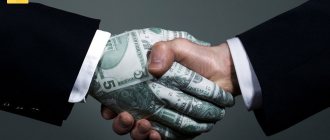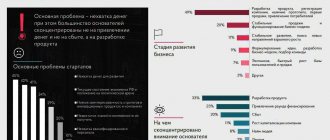Number of views: 59,577
So, you have decided to invest your finances in something. This is the right decision, especially for those who already have their own home, a car, and can afford to travel a little. And those who are just starting to achieve success should also learn to invest their free funds in profitable stocks.
Here are the Top 10 most profitable stocks in Russia in 2020. Study the data to form your own opinion about where you should and shouldn't invest. Even now, amid quarantine and a pandemic, many stocks continue to grow. And this means that it is important to understand where to invest money right now in order to receive constant growing profits later.
If you learn to do correct technical analysis of the stock market, you can constantly make profits. We also recommend studying the combined method of technical and fundamental market analysis.
Isn’t it a dream to make your income completely passive? You will enjoy life, travel to different countries, and your income will grow at this time!
But for beginners it is always difficult to decide where to invest money so as not to make a mistake.
The first and most important advice: never invest the money that is intended to buy vital things: food, housing, medicine, clothing. Spend on stocks only what you will live without without
What are shares
It is a listed asset that is issued by a commercial or government company and gives the investor a proportionate share of the business. Along with this share, the issuer receives the right to part of the corporation's profits (dividends) and participation in the life of the company (if there is a large pool).
Primarily bought and sold on stock exchanges, although direct purchase from the issuer or other security holder is also possible.
In the event of liquidation of the company, ordinary shareholders receive due payments through the sale of corporate assets. There is also a type of asset called preferred shares. This type does not have voting rights at annual shareholder meetings, but they have higher priority in receiving dividends or distributions upon liquidation of the business.
How can an individual buy shares - 3 options
Let's consider the question “where and how can an individual buy shares”? Any citizen of the Russian Federation who has reached the age of 18 can become a shareholder. To buy shares, you do not need to be a qualified investor, have an economic education, be on the Forbes list, etc. Any individual can buy securities and thereby become a co-owner of the largest companies such as: Sberbank, Gazprom, Lukoil, Rosneft, Yandex, Apple, Microsoft, Intel, Google, etc.
3 options to buy shares of Russian companies
- Through the Moscow Exchange (MICEX) (the best way). Buying and selling takes place online via the Internet. For example, through programs for computers and mobile devices. There is no need to call anyone or wait for anything. You can carry out the operations yourself. Trade purchase/sale operations are carried out instantly. After transactions are completed, the data is transferred to the depository.
- At a bank branch (not everyone has this option). Banks offer to buy shares at their prices. At the same time, there is too little choice of companies in which to invest. An extremely inconvenient method. At the same time, there are additional decent commissions (0.3-1.0%).
- Directly from a private person. This is an inconvenient and illiquid option. You will have to independently look for a shareholder who wants to sell a certain number of shares, then go with him to Moscow, rewrite the entry in the depository register of holders, and so on. This method is suitable for investing in companies that are not listed on the exchange. This market is called “over-the-counter”. Most of the investors here are experienced.
The easiest way for ordinary individuals to buy shares is through the Moscow Exchange (MICEX). This is the main platform for trading securities in Russia.
Why buy shares
Stock prices are usually linked to the long-term prospects of a business. If a business is successful and grows over time, the value will generally increase over the long term. Because of this feature, few investments can rival stocks' return potential, and they are a staple of almost every portfolio.
For example, bonds provide more certainty by giving fixed, predictable payments; indices provide more security, but their growth is limited. Shares can rise in price by hundreds or thousands of percent. However, they can also fall catastrophically. Therefore, investing in them was and remains not a source of income for everyone.
Pros and cons of investing in stocks
Investing offers many benefits:
- Allows you to get the most out of a growing economy. As the economy grows, so do corporate earnings. This is because economic growth creates jobs, which generate new income, which in turn leads to people spending more and supporting the domestic market by saturating it with money. Stocks grow along with the market, getting the most from it.
- Inflation protection. They provide a natural mechanism for protecting against inflation. In a free market, when a currency depreciates, the issuer simply raises the price of its products, so stock growth usually outstrips inflation. However, this mechanism has a ceiling in the form of purchasing power. Therefore, prices cannot rise indefinitely either.
- Easy to buy. The stock market has gone online, and today it is easy to buy company securities via the Internet from one of the many brokers.
- You can make money in several ways. Conservative investors primarily rely on dividends. Speculators are betting on growth stocks. Therefore, it is a universal asset that fits any investment style.
Here are some disadvantages of owning these assets:
- Risk. Simply put, if you invest in securities, you can lose your entire investment. If a company performs poorly, investors quickly sell shares and finally collapse the issuer. And in general, companies often go bankrupt on their own due to changed market conditions. Just keep this in mind.
- Shareholders are paid last. Bond and preferred preference holders are paid dividends first. Common shareholders get what's left. The same applies to money from the sale of property of a bankrupt company during liquidation.
- Emotional and unpredictable market. The price of assets does not always depend on the performance of the company. One hot news, rumor or scandal is enough to overwhelm even an old and strong dinosaur. And it is virtually impossible to prevent this danger.
Which stocks to buy for dividends
Not all Russian companies make payments to shareholders. You can find out which companies pay investors profits by using the dividend calendar . It includes information:
- name of shares;
- sector of the company's activity;
- validity period of the securities;
- payment per 1 share (planned or completed);
- payout yield as a percentage.
When purchasing securities, it is important to select securities with the maximum dividend yield at the minimum price per share.
An investor can select any company that interests him and see the dynamics of changes in the size of dividends, projected profits and the nearest dividend payment date.
Experts advise focusing on organizations that periodically make payments over a long period of time (at least 3-4 years). Shares of Russian companies that will pay dividends in the next 3 months. I publish in the article “Russian dividend stocks“.
You have selected shares and formed an investment portfolio , calculated the possible income. But don't rush to make a purchase. First, pay attention to possible costs.
How to invest in stocks
To invest, you need an investment account. For the average person, this usually means finding an online broker and opening a trading account with them.
How to buy shares as an individual
The easiest do-it-yourself option is to open a brokerage account yourself and trade without a professional manager. After registration, account verification and depositing funds, the broker offers to download the proprietary trading platform and start trading.
Each broker provides detailed guidance on opening a brokerage account with them in the form of step-by-step instructions. Simply put, detailed instructions for dummies, plus an online chat at hand if any problems arise. So this can be considered one of the simplest steps.
How to choose stocks
Buying and selling securities is easy - the online broker has tried to ensure that technically the process itself is just a couple of clicks of the mouse. It is much more difficult to learn how to invest - to choose the right assets, to properly diversify the portfolio and to rebalance it in time.
Here's what I'm going by:
- How can this particular paper make me money. When I buy a company asset, I evaluate in what form it is more useful - as a dividend security or as part of a successful business that I can sell for a lot of money later.
- How will it perform in the long term? The stock market can be very volatile, but the good news for investors is that, historically speaking, it remains a rising stock. Therefore, you need to evaluate the stock with a view to the years ahead.
- How well do I understand the topic? The golden rule of the stock market masters - invest only in what you understand - remains valid to this day.
- Does the company have a competitive advantage? Competitive advantage is essentially an advantage over similar companies; the more sustainable it is, the more likely the company is to remain profitable in the long term.
- How effective is the company's management? Management is responsible for making strategic decisions that, over time, affect the value of the company. This is why it is so important to find a company with strong staff.
How to make money from rising prices
Investors have several strategies they can use to make money in the stock market.
One of the popular ones is buying growth assets, that is, companies that are ahead of the market, increasing their profits faster than other competitors in the industry.
Companies that can do this over a long period of time are more effective at attracting investors, since they not only provide good prerequisites for regular dividends, but also allow them to sell securities profitably in order to expand their portfolio.
Here are the things I look for when looking for growth stocks:
- general market macrotrends;
- market capitalization of the company;
- profitability;
- sales growth rate;
- projected and actual profit growth;
- market sector prospects.
Although in fact there is no “armor-piercing” formula that will allow you to pull only the clearest papers into your basket. There is always room for error.
The most common questions
Next, we will look at the most frequently asked questions among novice investors, among which yours may be included:
- Which stocks are best to buy? The most reliable and liquid securities are blue chips. For example, Gazprom. That is, these should be companies that will still be vital in a crisis, usually these are companies with state participation.
- How to make money on stocks? There are two ways. The first is buying at one price and selling at a higher price. For example, Gazprom increased in price by more than 50% in 2020. The second way is to receive dividends, that is, part of the company’s profit that goes to shareholders.
- Everything is very complicated in the terminal, how to figure it out and buy company shares? You can contact technical support, they will tell you everything live, just like that: “Press this button, enter the transaction volume...”. You can also download the instructions for the terminal or use a simpler and more intuitive mobile application. By the way, everything in it is very convenient and displays account information.
- What is collateral and margin call? If we simply buy shares of a company and hold them, then there is nothing to worry about. If we speculate and trade futures, currency pairs and others using leverage, then in the event of losses our positions may be forced to be closed. Funds are reserved for each transaction. When there are few of them, this unpleasant event will happen.
- What are CFDs on shares? This is what offshore brokers offer and has nothing to do with the actual trading of company securities.
- Which broker to choose? Everyone chooses based on the conditions. We recommend Tinkoff and Sberbank.
- What currency is the broker's account in? In rubles. If you want to insure against exchange rate changes, trade shares of foreign companies, or have additional open transactions to buy the USD/RUB pair. If the ruble falls, we will make a profit from such a transaction.
- The broker offers trust management services, is it worth investing? There is no clear answer, but there are risks. If you trust in this matter, then only in relation to bond trading; usually there are separate investment projects with a guaranteed income, so they can be considered.
- Where are dividends transferred? Dividends come to the broker, he transfers them to clients. One can transfer today, and another broker in two days. If there is a delay, then don’t worry, everything here always works smoothly.
- How are dividends paid? Each company has its own procedure and amount of payments; you need to familiarize yourself with this information on the company’s website before buying its shares.
- What will be the costs of trading? There is a commission for the transaction, there is the cost of servicing the account. If we don’t have 10,000 rubles in our account or 1,000 transactions per month, then everything is within the limits of almost imperceptible amounts. You need to look at the terms and conditions of each individual broker.
- How to buy shares for an individual - is it clear what else you can buy? You can take a closer look at bonds, metals, currency pairs, futures, mutual funds, ETFs. But it’s better to have at least minimal preparation.
- The company's shares have fallen, what to do? The market is unpredictable. If the stock fell 2%, that's normal. If it’s 10%, then you need to find out the reasons. In any case, if it is a large company, its shares will sooner or later rise. Long-term investing is preferable to short-term investing, you can wait it out, dividends will still come.
- When is the best time to buy shares of companies in Russia? It is best to buy when there was a crisis and then the recovery begins. On fears, speculators drive the price down to completely inadequate levels, after which a slow but steady recovery begins. In normal times, you can buy on dips.
- Is it possible to buy additional shares? We can buy at any time as long as we have enough funds to secure it. Gazprom could be taken for 140, 150, 170 and 200 rubles. That is, add it to the portfolio gradually, as, so to speak, demonstrate the seriousness of his intentions to grow.
A little about stock dividends and when you can get them
If a company makes excess profits and decides to share it with common shareholders, it pays dividends. This is usually done quarterly, every 6 months or at the end of the financial year. The decision on payments is made by the board of directors.
How to make money on dividends
At first glance, the strategy is simple - buy assets of companies that pay good dividends, and sit with your hands folded, watching how money drips into your account over the course of a week, month, or year. And in principle, that’s how it all works.
But there are nuances. For example, I pay attention to the following:
- It’s safer not to invest everything in a couple of issuers with high dividends, but to collect a set of shares with different yields;
- dividends in any case should be ahead of inflation;
- the asset must remain relevant and valuable in the long term (two to three decades) in order to earn not only from dividends, but also from price growth.
It is better to include papers from different countries in the “collection” so as not to depend on one currency or government.
How to choose a company with high dividend shares
The first thing to look for is stability. If a company pays a lot but has an inconsistent payment schedule, cross it off your list. You won't regret it.
Second, don’t trust “debtors.” If everything is going well for a company now, business is booming and revenue is growing, but there are significant debts hanging behind it, I would not invest. Debt to equity ratio is a very important parameter.
And, of course, check the relevance. This factor is often overlooked, although it shouldn't be. For example, today, the oil and gas industry is suffering due to falling oil prices, and all stocks are weakened by bearish trends.
But, judging by statistics, the population of Europe is beginning to age. This means that healthcare and pharmaceutical companies with great potential will soon expand their market and start earning more.
Step-by-step instructions: how to buy shares for an ordinary person
Today, purchasing securities is a technically simple process. The steps to be taken are below.
We evaluate our own financial resources
I advise you to invest at least 50,000 rubles in the purchase of shares. This is the optimal minimum amount for forming a starting long-term portfolio or speculation. For large brokers, this same amount is the starting point for charging an additional commission (Otkritie, IT Invest, etc.). If the client’s assets are smaller, there is an additional fee of 250-300 rubles per month.
The money that an investor invests in the purchase of shares must be free of obligations (credit, etc.), not least in the family budget. Trading on the stock exchange does not like haste. These are, first of all, long-term relationships, investments in the future when investing.
Deciding on a strategy
Decide on your future investment strategy and timing. Buying long-term means a year or more. The main strategies are dividend-paying, undervalued shares based on fundamental indicators, the best based on the reporting for the previous period. Or strategies taking into account various factors. An example is the selection of undervalued companies with high dividend levels.
Choosing trading platforms
For a Russian resident, the choice is possible from Russian and foreign trading platforms. Russian - without an alternative to the largest Moscow Exchange. Leading brokers, in addition to the Moscow one, also provide access to the instruments of the St. Petersburg Stock Exchange. The entry threshold is 30–50 thousand rubles to start.
Foreign - primarily American exchanges - NYSE, CME, NASDAQ. Access through a Russian or foreign broker. The minimum amount for trading is $10,000. If through a Russian broker with the status of “qualified investor” - 6 million rubles.
There are an order of magnitude more liquid instruments on American exchanges, but it is also technically more difficult to trade there. Starting from the difficulties of opening a trading account to protecting the rights of an investor who is not a resident of the United States or another country. For a beginner, the best option is to start by buying blue chip shares in the stock section of the Moscow Exchange.
Timing to Enter the Market
Not a single investor in the world knows how the price of shares of a particular company will behave tomorrow or in three months. The purchase is based on the assumption of future growth. Price movements are influenced by a lot of factors - from fundamental and geopolitical to regional and news about the issuer itself.
The best time to buy is when the price is falling on a general long-term uptrend.
Using the example of a daily price chart, I will consider the purchase of Sberbank shares; the optimal entry points for a long position are shown by arrows. As you can see, the general trend is upward.
Any news about the company can give impetus to a long-term trend up or down. An example is a change in Gazprom's dividend policy towards an increase. This decision was published on May 14, 2020, instantly giving impetus to the purchase of securities.
This is a positive long-term factor that large investors will take into account when considering buying shares of the blue giant. They can raise quotes to new levels.
Indicators of technical and fundamental analysis will provide additional clues to the investor.
Who is a broker and how to choose one
A professional market participant whose main activities are now related to stock trading and investing. The broker operates on the basis of a license from the regulatory authority. In Russia - the Central Bank, in the USA - SEC (Securities Commission). The website of the Central Bank of the Russian Federation publishes current information on issued licenses.
The second thing you need to pay attention to is the broker’s access to the platform that interests you - the stock market, FORTS derivatives market, currencies. To buy shares we need a stock section. This information is published by the Moscow Exchange on its website. We look at the column “Trading participant in the stock market”.
Look at the broker's history. If it has been on the market for less than 5 years, it is better not to consider it. Plus customer opinions on the Internet. You should consider whether the broker's rates are suitable or not for the strategy you have chosen.
An important aspect: whether or not the broker conducts training in various forms - from webinars to personal participation.
Rating of the best and reliable brokers
When choosing a broker, I recommend paying attention to the following companies (licensed and time-tested):
Reliable Russian brokers
| Name | Rating | pros | Minuses |
| Finam | 8/10 | The most reliable | Commissions |
| Opening | 7/10 | Low commissions | Imposing services |
| BKS | 7/10 | The most technologically advanced | Imposing services |
| Kit-Finance | 6.5/10 | Low commissions | Outdated software and user interface |
Which stocks are best to buy: tips for choosing
When purchasing a security, various approaches and strategies are used to form an investor's portfolio. The goals are to make money on dividends and rising stock prices. Selection of investment objects - from the selection of undervalued securities to the purchase of shares for events that may affect price growth in the future.
An example is a sharp decline in oil production, followed by an increase in the price of hydrocarbons, followed by an increase in oil production companies.
To evaluate before purchasing a portfolio, I recommend using the analytical table of IC Income with a selection of investment strategies developed by experts of this company using standard and original methods.
Leading Russian enterprises in whose shares it is profitable to invest
I will use the IR Income service, which is described above, using two strategies simultaneously to buy shares in the portfolio:
- dividend, with the largest payments and a high DSI coefficient (regularity of payments over the last 7 years);
- value, undervalued by the company's market in terms of profit assessment.
As can be seen from the sample results, the service recommends 5 companies for purchase:
- Sberbank;
- IDGC;
- VTB;
- LSR;
- Gazprom Neft.
By setting individual values in the filters, an investor can flexibly select shares for purchase based on different parameters and using different approaches.
How to make a deal
After signing an agreement with a broker and opening a trading account, an application to purchase shares can be sent by phone, in writing, or using a trading terminal installed on a PC. Or use the WEB version. For smartphones - mobile.
Using the trading terminal, place an order at a market or fixed price. In the first case, the purchase order will be satisfied on the market by the nearest sale price in the spread. In the second - at the price determined by the investor. However, it may not be satisfied due to the lack of a price offer.
How to receive dividends
At the time of the cutoff of the register of shareholders, the depositary must have a record confirming ownership of the share. The cut-off date is known in advance and is published on the issuer’s website or in the media. In case of payments, the nominal holder receives dividends. To receive it, you do not need to hold the share all the time - it is enough to purchase 3-4 days before the cutoff - no later than the ex-dividend date.
Who is a broker and how to choose a good broker to buy shares
The Internet has made it possible for anyone to start investing. An online broker provides the opportunity to trade stocks and other exchange-traded assets without leaving your home.
Choosing a broker starts with knowing your investing style. Other important parameters are:
- Broker type. There are two types of brokers: regular (Dealing Desk) brokers, who trade clients' money on their own behalf, and intermediary brokers (NDD), who only act as intermediaries between the client and the liquidity provider.
- Commissions. Depending on the account type, the broker may charge a fixed amount or a spread. We choose the one that best suits our trading style.
- Minimum contribution. Amounts vary - from several hundred to several thousand dollars. The standard minimum deposit for a decent broker starts at $300. In fact, our first broker will not necessarily remain our only broker for life. Life changes and so do our needs. Therefore, you always need to be mentally prepared for migration.
Rating of the best brokers
Using MICEX statistics, we can compile the following list of brokers:
- BKS;
- Opening;
- Sberbank;
- ALOR+;
- FINAM;
- VTB;
- ATON;
- GPB;
- KIT Finance;
- Promsvyazbank.
These are the companies with the largest trade turnover, reliability indicator and degree of customer trust.
Costs associated with the acquisition
Shares allow all investors to receive dividends. But there are certain costs for purchasing shares, in addition to the cost of the security itself, which should be taken into account when planning a purchase. These include:
- costs associated with maintaining an account with a brokerage firm , including fees for maintaining or setting up an account.
Purchasing shares is only possible with the help of a broker, who charges a fee for his services, because... Joint stock companies do not work directly with individuals.
- commissions for buying and selling shares,
- expenses for transfer or deposit of securities,
- payment for access to quotes.
The above costs must be taken into account when planning dividend income. Therefore, when opening an account to purchase shares, be sure to check the amount of commissions and related expenses of the broker. I buy stocks through licensed companies that provide free brokerage account opening services.
I recommend large Russian companies for investing in securities:
- BCS Broker
BCS Broker - occupies a leading position in terms of turnover on the Moscow Exchange.
- Convenient replenishment from a bank card of any bank,
- Access to the stock, foreign exchange and derivatives markets of the Moscow Exchange, St. Petersburg Exchange and international platforms,
- Trading in the familiar platforms Quik, Metatrader, TWS or your own application,
- Forecasts and investment ideas from bank analysts,,
- Dividend payment,
- Withdrawal of funds without commissions
- You can make money when stocks fall.
Try it on a demo account
Recommended reading: How to buy European shares
With an initial capital of 40,000 rubles. It’s better to choose a BCS broker, up to this amount of Tinkoff Investments.
Verified foreign companies for investing in foreign and over-the-counter securities.
- Roboforex Stock
- FxPro
Roboforex Stock - with minimal commissions for purchasing foreign shares
- 15 years in the stock market,
- $100 is the minimum deposit,
- 95% positive feedback,
- Access to American and European stock markets,
- Free stock trading training course,
- Dividend payment,
- Current trading ideas for investment,
- Free demo account with the ability to test robots.
FxPro is the best in CFD trading and execution speed
- Shares of leading companies in the USA, England, France and Germany,
- 1:25 — leverage for buying shares,
- Trading in the familiar MT4,
- 11 milliseconds - average execution speed ,
- Dividend payment,
- Withdrawal of funds without commissions
- You can make money when stocks fall.
Also, do not forget about taxation of income received at a rate of 13%. Tax is levied only on income at the time of payment or at the end of the calendar year. Those. if you purchased shares in the amount of 100,000 rubles, received dividends of 18,000 rubles, then at the end of the year or when withdrawing the entire amount, the broker will withhold 2,340 rubles from the income due for payment. (RUB 18,000*13%). Those. dividends in the amount of 18,000 rubles. allow you to get 15,660 rubles. net income. It's not so fun anymore, you say.
This is not a reason to think that making decent money on stocks is a myth. After all, earnings from stocks are not limited to dividend yield.
How many shares do you need to receive dividends conclusions
Famous investors have made their fortunes from rising stock prices. For comparison, you can consider Sberbank shares, the value of which has increased by 29% since the beginning of 2020, plus the value of dividends.
If you pay attention to the American stock market, the results will be much more pleasant. Brown Forman (BF.B), which I wrote about in my article “Promising Stocks for 2019,” is up 45.49% since January of this year, in addition to paying quarterly dividends.
Therefore, having received the answer to the question of how many shares you need to receive dividends, do not focus solely on this method of making money on shares. Look for assets that, in addition to good dividend income, have a high chance of growing in price. You will find detailed information about this in the article “Strategies for investing in stocks with examples.”
How to buy securities based on data
Here are the common options.
EBITDA
Earnings before interest, taxes, depreciation and amortization is an important metric in valuing a stock.
Interest income and expenses, as well as taxes, are set aside because these are secondary factors. The canny analyst uses EBITDA to measure a company's true growth.
P/E or price and earnings
Investors often use the P/E ratio in their analysis, but there is a slight downside to it. The price can rise not only due to natural factors, but also in the event of a classic confrontation between bulls and bears. For example, if investors are overly optimistic, this causes the P/E ratio to be inflated and distorts the actual data.
P/S price and sales volume
The price-to-sales (P/S) ratio is a valuation ratio that compares a company's market capitalization to its annual revenue. To calculate the ratio, a company's market capitalization (the total number of shares outstanding multiplied by the share price) is divided by the company's total revenue over the last 12 years. The lower the P/S ratio, the more attractive the investment.
When to pay taxes
The legislator does not prohibit individuals from buying shares and receiving dividends, however, as with any income received on the territory of the Russian Federation, dividend payments must be paid personal income tax - personal income tax (for tax residents of the country its amount is 13%).
If you opened an investment account through a broker, you won’t have to pay taxes yourself—the broker will withhold them automatically.
However, there are exceptions when the broker does not withhold tax and you need to pay it yourself:
- if dividends are paid in foreign currency;
- if the company is foreign.
In these cases, the profit will have to be declared. To do this, you will need to draw up a declaration in Form 3-NDFL and submit it to the tax authority no later than April 30 of the year following the year in which the dividends were received. The declaration can be submitted through the taxpayer’s personal account on the tax website or personally submitted to the territorial tax office.
Risks and ways to avoid them
Investing is a risky business.
In my opinion, the main dangers are:
- Economic risk. To put it simply, the economy could go bankrupt. For example, in 2008-09, many economies went bankrupt and defaulted. And shares of local companies have fallen significantly in price.
- Currency risk. If we own foreign investments and earn in foreign currencies, it can sometimes hurt if our currency strengthens too much against that one.
- Credit risk. The issuer may accumulate too much debt and go bankrupt. Quite a real scenario.
To reduce risks, we use the following:
- index funds instead of individual assets;
- diversified portfolios instead of mono-stocks;
- reinvesting dividends instead of withdrawing cash.
If the market moves, move your money into protected sectors or hedge with precious metals.
When to expect dividend payment
The frequency of dividend payments by companies is not regulated. The source of financing dividends is the company’s net profit - the founders can send it to shareholders, or they can save it by investing in production development (for example, by purchasing new equipment). According to the law, dividends can be paid every three months - after the preparation of interim financial statements (Clause 1, Article 42 of the Law “On Joint Stock Companies...” dated December 26, 1995 No. 208-FZ). Of course, they can be paid less frequently, for example once every six months or year.
If the company’s management nevertheless decided to pay profit or part of it as dividends, the money will have to be transferred to shareholders within 25 business days from the date of closure of the register (clause 6 of article 42 of Federal Law No. 208). In practice, money usually arrives earlier - within 8-10 days.
What stocks are profitable to buy now?
And again I will present several promising options for today.
Russian dividend stocks
There are not many profitable blue chips in the domestic market. But there is still something to profit from.
In 2020, the list of the best Russian dividend stocks is headed by:
- PJSC "Surgutneftegas" - 18.12%;
- PJSC Severstal - 17.15%;
- NLMK - 14.31%.
Russian growth stocks
There are sectors of the economy in Russia that generate consistently high profits.
This year it is profitable to buy:
- PJSC RusHydro. Growth potential - 51%;
- PJSC Inter RAO. Growth potential - 28%;
- PJSC Rusal. Growth potential - 24%.
Foreign dividend stocks
Of the foreign ones, the American ones look the most attractive at the moment:
- Watsco. Dividends - 4%;
- Cinemark Holdings. Dividends - 3.5%;
- Microsoft Corp. - 1.46%.
Foreign growth stocks
Fastest growing:
- Adobe. Growth since the beginning of the year - 22%;
- Cerner Corp. Growth since the beginning of the year - 28%;
- Salesforce.com. Growth since the beginning of the year is 22%.
How to receive dividends on shares for an individual
Each company has closing days for receiving dividends, these are known in advance. Everyone who has shares on the day the register closes is included in the list of shareholders, which means they receive dividends for the previous year. After the register is closed, the purchased shares can be sold even the next day. As a rule, these register closing days occur in May, June, and July.
- Dividend yield of Russian companies
- Dividend shares for 2020
For example, the company register closes on May 20. We remember that the MICEX is traded on the “T+2” principle. In this case, the shares should be at the close of the exchange on May 18th. The next day, May 19, they can already be sold, since the data is important only at the time of closing the register of shareholders.
Consider the fact that as soon as the register closes, the next trading session of this stock occurs with a sharp downward gap by the amount of the expected dividends, including taxes of 13%.
For example, if the value of Gazprom at the closure of the register was 200 rubles. Dividends are expected to be paid at 20 rubles. per share, then the next trading session will most likely open at around 184.6 rubles. For those who trade short, they will not be able to make money on this, since the broker will charge a commission on the amount of dividends. Many brokers do not allow shorting on such days at all.
Dividends are credited automatically by default to the brokerage account within 20-60 days from the moment the register is closed. If desired, you can instruct the broker to pay to an external bank account. Some charge an additional commission for such an operation.
TOP 10 most expensive stocks
And now a few leading cherries on the cake.
In the world
Leaders:
- Berkshire Hathaway - $307,800 per share;
- Seaboard Corporation - $4.325 per share;
- NVR Incorporated$ - $2468.63 per share;
- Amazon - $1,813 per share;
- Booking Holdings, Inc. — $1,762 per share;
- The Priceline Group Inc - $1,723.90 per share;
- Apphabet - $1,192 per share;
- Markel Corporation - $982 per share;
- White Mountains - $923 per share;
- Cable ONE - $842.76 per share.
In Russia
The most expensive Russians in terms of trading volume (per 1 share):
- Transneft - 177 thousand rubles;
- ALROSA-Nyurba - 148 thousand rubles;
- Norilsk Nickel - 16,156 rubles;
- Magnet - 354 rubles;
- Lukoil - 3057 rubles;
- Rosneft - 340 rubles;
- Sberbank - 147 rubles;
- Gazprom - 134 rubles;
- ALROSA - 72 rubles;
- Surgutneftegaz - 29 rubles.
Why are Berkshire Hathaway shares so expensive?
In 1980, a share of Berkshire Hathaway stock was worth less than $300. Not so bad, right? But a decade later, the Berkshire was worth about $7,000. In 2000, its price rose to $50,000. And today, as you know, it costs more than $300,000! What's the solution?
The fact is that Berkshire shareholders are Buffett's partners. Buffett never split Berkshire Hathaway. He admitted that he was afraid of speculators who would try to make money on his shares, so he made them expensive.
How many shares do you need to receive dividends?
An investor who owns at least one share of the company already has the full right to receive the appropriate dividends. Profit is paid in proportion to the number of securities that a person holds on the day the register of shareholders is closed.
Recommended reading: Oil company shares
However, keep in mind that not all shares are sold at 1 unit. Often joint-stock companies sell them in lots. They can consist of one or several securities. In this case, each lot contains a number of shares that is a multiple of 10:
- 1,
- 10,
- One hundred,
- Thousand,
- 10000.
Using Russian stocks as an example:
- 1 lot of Gazprom includes 10 shares. Those. If you are asked how many Gazprom shares you need to receive dividends, they will answer that one is enough - this will be partly true, because You can earn money by having at least 1 lot in your hands, i.e. 10 shares.
Gazprom tops the rating of large companies in the oil and gas sector of the Russian Federation, which has significant income from the services provided. Therefore, the shares of this organization are in significant demand . In 2020, Gazprom increased the size of dividends from 8.04 to 16.61 rubles per 1 security. The growth compared to the previous 12 months was more than 100%. about how to make money on Gazprom shares in the article “ How to buy Gazprom shares and receive dividends .”
- 1 lot of Sberbank PJSC includes 10 shares;
Sberbank shares have not been very profitable in recent years. However, in 2020 high dividends were recorded on them. The yield almost exceeded 16 rubles per share. In turn, 4 years ago the yield on these securities was a ridiculous 45 kopecks.
- 1 lot of Magnit securities includes 10 pieces;
- 1 lot of Surgutneftegaz includes 100 shares.
To summarize, you can receive dividends even if you have 1 share. But not all organizations sell securities individually. In addition, before purchasing, it is important to decide which shares are more profitable to buy in order to increase profitability: ordinary or preferred.
Difference between preferred shares and ordinary shares
Currently, you can purchase two types of shares of Russian companies, which differ significantly from each other.
- Regular shares. Owners of such securities receive voting rights, as well as the opportunity to receive dividends on a general basis. In addition, investors are able to lay claim to all the company's property in the event of its bankruptcy . This type of paper is one of the most common.
- Privileged. People who own such securities have limited voting rights at meetings, but can make decisions about the reorganization of the company or its liquidation. Investors with such securities have a preferential right to receive dividends.
Often, a company's charter will have a specific clause regarding a fixed amount or percentage of par value for preference shareholders. If there is no such clarification, preferred owners receive the same return as investors with ordinary securities.
When is the best time to buy stocks?
The answer to this question allows you to decide how long you need to hold shares in order to receive dividends.
On this topic, there is no clear calendar with which you could buy shares at a certain time at the minimum price. According to experts, the most optimal and simple strategy for purchasing shares for the average investor is to purchase them at approximately equal time intervals. For example, you allocated 100,000 rubles for the purchase of shares. Based on the approach:
- 33% of shares should be purchased at the beginning of the year,
- 33% after submission of financial statements,
- the remaining 33% - 2-4 weeks before the closure of the register of shareholders.
Recommended reading: Cruise company shares
This will protect novice investors from taking unnecessary risks in case of any unexpected financial shocks. This method is effective no matter how expensive or cheap the shares are, what the market situation is, etc. In this case, the buyer will have the only limitation - his own amount of money at a particular point in time, which he can afford to use to purchase shares.
also recommend alternating between cheap and expensive securities . This will help diversify risks and average the cost of the assembled portfolio.
How and where to look for the cheapest stocks
Stocks are an inexpensive way to invest, but they can be very risky. The best information about them is provided by the broker themselves. There are also message boards and other resources.
How to make money on them? My recommendations:
- Ignore the hype. Only a pragmatic assessment of the asset.
- Focus on factual information about the company. We ignore those who simply advertise companies or securities without mentioning their profitability or asset value.
- It is always beneficial to be ready to sell them. Not all cheap stocks are worth holding for years. So if an opportunity presents itself to sell them profitably, you should not ignore it.
How the exchange functions and how trading occurs on it
As I already wrote, this is a platform. Bidding is carried out on it:
- Shares
- Payami
- Depository receipts
- Bonds
- Futures and options contracts
- With the purchase and sale of currency with the possibility of withdrawing it to bank foreign currency accounts
- Currency speculation
- There is even a market for precious metals and a market for grain and sugar.
commodity exchange home page
Where does all this come from on the stock exchange? Are they delivered by car?
If everything is more or less clear about precious metals, grain, and currencies, then what about securities? In fact, securities are issued to attract money. Any company or state can issue such securities. One way to get money for your further development is to provide a share of your company.
Who can get them from very easily?
For investors and ordinary citizens. Buyers become co-owners of the company. The company's capital is divided into micro shares and there can be a lot of such co-owners.
This company carries out state registration of shares in the register and goes out to meet buyers at the Moscow Stock Exchange. You can borrow money from buyers by giving them bonds. And then pay off according to the conditions specified in this very promissory note. Something that benefits everyone.
This option is also beneficial for us individuals.
And speculation with securities, with futures, with currencies, buying bonds, but under one condition...
We need to think about what we are doing, why we are doing it, and what we want to get.
That's all! And I also forgot to say that on the Moscow Exchange trading is divided into categories.
- Stock market
- Derivatives market
- Currency market
- Commodity market
Okay, let's talk briefly about it, but who is the owner of this Field of Miracles? The owner is not the state, but the Moscow Interbank Currency Exchange. The Moscow Exchange appeared after the merger of two different exchanges: MICEX and RTS. But personally, all this is not interesting to me, what matters is who manages it and what federal laws control its activities.
On the exchange’s website itself, it was not without difficulty that I found information about who manages such a huge platform. The governing bodies of the Moscow Exchange are:
- General Meeting of Shareholders
- Supervisory Board
- Board and Chairman of the Board
The control body is the Audit Commission. This is what I found from the REGULATIONS on the Audit Commission of the Public Joint Stock Company "Moscow Exchange MICEX-RTS" dated April 26, 2020, minutes No. 54:
From the regulations on the Audit Commission of the Public Joint Stock Company "Moscow Exchange MICEX-RTS" dated April 26, 2020, minutes No. 54
Everything is in our Russian style, a lot is written, but little is understandable.
But so far I have not had any problems with the exchange, which means that the exchange and the broker perform their functions well. The exchange ensures the security of the transaction. And its activities are regulated by the laws of the Russian Federation:
Federal Law No. 208-FZ of December 26, 1995 “On Joint Stock Companies”
Civil Code of the Russian Federation (part two) N 14-FZ dated January 26, 1996
Federal Law No. 307-FZ of December 30, 2008 “On Auditing Activities”
Federal Law No. 39-FZ of April 22, 1996 “On the Securities Market”
Federal Law No. 325-FZ of November 21, 2011 “On Organized Auctions”
Federal Law No. 7-FZ of 02/07/2011 “On clearing and clearing activities”
And this is not the entire list of laws. And there are also regulatory legal acts. I have cited only the most basic ones. And at the end of this section of the article, it is worth noting that the Moscow Exchange is gaining momentum. See for yourself. I found such data in the archives of the Moscow Exchange.
Since 2013, the number of individuals involved in trading activities has increased 2.2 times.
And this is in just 5 years. Look for yourself, in the table this dynamics can be traced from left to right.
| Client groups | December 2013 | December 2014 | December 2015 | December 2016 | December 2017 | December 2018 |
| individuals | 881 844 | 944 559 | 1 006 751 | 1 102 966 | 1 310 296 | 1 955 118 |
Of course, this is very little if we take into account that according to https://www.statdata.ru/ the population of the Russian Federation as of January 1, 2019 is 146,780,720 people. Even if we take only ¼ of these 146 million people who, by age and education, can trade on the stock exchange. This will be only 5% of 37 million people.
We are at the very beginning of this journey.










